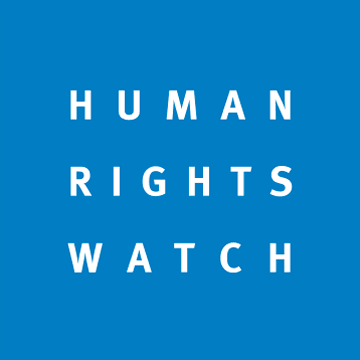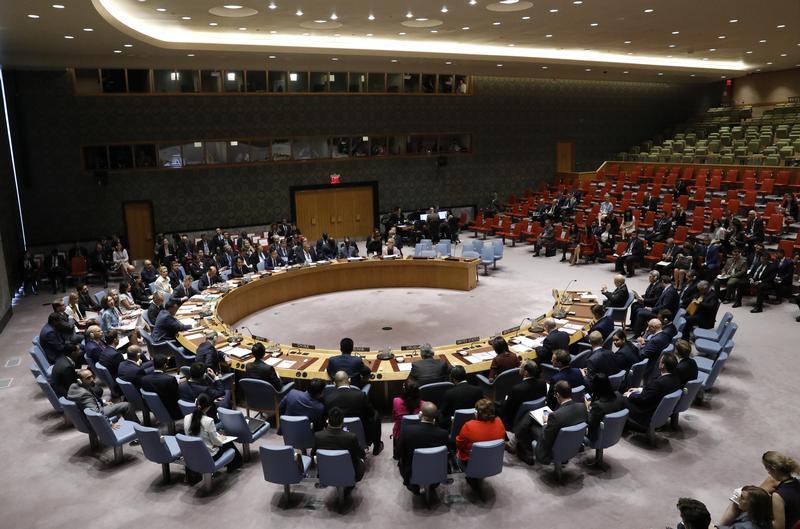New UN Investigation on ISIS Has Limited Mandate
(New York) – A new United Nations investigation of crimes committed by the Islamic State (also known as ISIS) in Iraq was not given the mandatethat the situation calls for, Human Rights Watch said today. On May 31, 2018, the United Nations secretary-general appointed Karim Khan to head a team tasked with collecting and preserving evidence of serious crimes committed by ISIS in Iraq.
The team was created based on a UN Security Council resolutionunanimously adopted on September 21, 2017. The resolution mandates the investigative team to document serious crimes committed by ISIS but failed to include within its scope of work the abuses, including war crimes, by anti-ISIS forces.
“In limiting the team’s focus, the Security Council effectively gave cover to one-sided justice in Iraq,” said Balkees Jarrah, senior international justice counsel at Human Rights Watch. “Though this new investigation could help further expose violations by ISIS and identify those responsible, it should not serve as an excuse to delay inquiries into crimes by all sides.”
(New York) – A new United Nations investigation of crimes committed by the Islamic State (also known as ISIS) in Iraq was not given the mandatethat the situation calls for, Human Rights Watch said today. On May 31, 2018, the United Nations secretary-general appointed Karim Khan to head a team tasked with collecting and preserving evidence of serious crimes committed by ISIS in Iraq.
The team was created based on a UN Security Council resolutionunanimously adopted on September 21, 2017. The resolution mandates the investigative team to document serious crimes committed by ISIS but failed to include within its scope of work the abuses, including war crimes, by anti-ISIS forces.
“In limiting the team’s focus, the Security Council effectively gave cover to one-sided justice in Iraq,” said Balkees Jarrah, senior international justice counsel at Human Rights Watch. “Though this new investigation could help further expose violations by ISIS and identify those responsible, it should not serve as an excuse to delay inquiries into crimes by all sides.”
Khan will undoubtedly face considerable challenges in his new post, Human Rights Watch said. They include the need to coordinate with Iraqi and Kurdish Regional Government authorities on correcting an array of flaws plaguing the Iraqi justice system, to build bridges with victims, and to collaborate with other documentation efforts.
While an initiative aimed at addressing the atrocities committed by ISIS is a positive first step to support accountability efforts in Iraq, it falls short of the comprehensive approach that would be needed to end the selective justice that has plagued Iraq for decades, Human Rights Watch said. Indeed, the ongoing lack of impartial justice in Iraq threatens to open new divisions at a moment when the Iraqi government has a unique opportunity to move the country toward meaningful reconciliation. It could also set a dangerous precedent for governments around the world to pursue a selective approach to justice in the wake of conflict.
Khan was a legal adviser in the prosecutor’s office at the International Criminal Tribunal for the Former Yugoslavia and Rwanda. He also served as defense counsel on various cases at the International Criminal Court, the Yugoslav tribunal, and the Special Court for Sierra Leone.
Khan has a difficult assignment, Human Rights Watch said. To have any chance of credible, enduring gains in the fight against impunity in Iraq, he will need to execute his mandate independently and innovatively.
Khan will need to ensure that the investigative team does not contribute to proceedings that could lead to capital punishment, in line with the longstanding United Nations policy of not supporting or assisting processes that could lead to the death penalty. Death sentences are a common penalty for those convicted of ISIS affiliation in Iraq.
In addition, he will need to address the ongoing, serious legal shortcomings that undermine the Iraqi justice system. His team will need to press Iraqi authorities to significantly improve respect for due process rights of ISIS suspects and detainees if the team is to share the information it gathers for use in fair and independent proceedings, consistent with their terms of reference.
The team should also urge Iraqi authorities to bring charges against ISIS suspects for the most serious crimes they have committed, and to take a more victim-centered approach to national accountability efforts. Iraq is prosecuting thousands of detainees under counterterrorism legislation for their affiliation with ISIS. But it has not charged any suspects for serious international crimes such as crimes against humanity, war crimes, or genocide – which are not criminal offenses under Iraqi law – or even specific violent crimes like murder, rape, or slavery – which are. The authorities have made no efforts to solicit victims’ participation in the trials.
“As things stand, the team won’t be in a position to share its information without significant improvements to the justice system and guarantees on the death penalty,” Jarrah said. “The effort to bring about justice for serious crimes in Iraq will require thoughtful, steadfast, and principled leadership by Khan.”
Source: www.hrw.org/news/2018/05/31/iraq-impartial-justice-effort-needed
While an initiative aimed at addressing the atrocities committed by ISIS is a positive first step to support accountability efforts in Iraq, it falls short of the comprehensive approach that would be needed to end the selective justice that has plagued Iraq for decades, Human Rights Watch said. Indeed, the ongoing lack of impartial justice in Iraq threatens to open new divisions at a moment when the Iraqi government has a unique opportunity to move the country toward meaningful reconciliation. It could also set a dangerous precedent for governments around the world to pursue a selective approach to justice in the wake of conflict.
Khan was a legal adviser in the prosecutor’s office at the International Criminal Tribunal for the Former Yugoslavia and Rwanda. He also served as defense counsel on various cases at the International Criminal Court, the Yugoslav tribunal, and the Special Court for Sierra Leone.
Khan has a difficult assignment, Human Rights Watch said. To have any chance of credible, enduring gains in the fight against impunity in Iraq, he will need to execute his mandate independently and innovatively.
Khan will need to ensure that the investigative team does not contribute to proceedings that could lead to capital punishment, in line with the longstanding United Nations policy of not supporting or assisting processes that could lead to the death penalty. Death sentences are a common penalty for those convicted of ISIS affiliation in Iraq.
In addition, he will need to address the ongoing, serious legal shortcomings that undermine the Iraqi justice system. His team will need to press Iraqi authorities to significantly improve respect for due process rights of ISIS suspects and detainees if the team is to share the information it gathers for use in fair and independent proceedings, consistent with their terms of reference.
The team should also urge Iraqi authorities to bring charges against ISIS suspects for the most serious crimes they have committed, and to take a more victim-centered approach to national accountability efforts. Iraq is prosecuting thousands of detainees under counterterrorism legislation for their affiliation with ISIS. But it has not charged any suspects for serious international crimes such as crimes against humanity, war crimes, or genocide – which are not criminal offenses under Iraqi law – or even specific violent crimes like murder, rape, or slavery – which are. The authorities have made no efforts to solicit victims’ participation in the trials.
“As things stand, the team won’t be in a position to share its information without significant improvements to the justice system and guarantees on the death penalty,” Jarrah said. “The effort to bring about justice for serious crimes in Iraq will require thoughtful, steadfast, and principled leadership by Khan.”
Source: www.hrw.org/news/2018/05/31/iraq-impartial-justice-effort-needed



 RSS Feed
RSS Feed